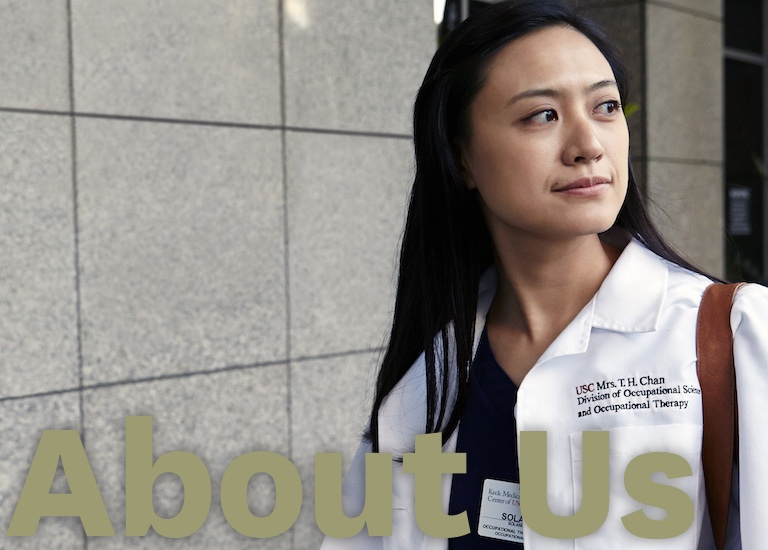Diversity, Access, and Equity
Affinity Spaces
USC Chan is committed to helping our students find and create affinity spaces. An affinity space is a physical or virtual space intended to be free of bias, conflict, criticism, or potentially threating actions, ideas, or conversations. The purpose of an affinity space is to provide a positive, affirming environment for groups, often those who feel marginalized, to come together and engage in open and honest dialogues.
Ongoing Closed Space Meetings for Chan Community Affinity Groups
Asian Community
Contact Trevor San Antonio at .(JavaScript must be enabled to view this email address) or Allison Chu at .(JavaScript must be enabled to view this email address).
This community meets the last Monday of every month from 5pm to 6pm through Zoom and in person (please message the facilitators to be added to the listserv for Zoom information, updates, and reminders).
Black Community
Contact Candace Chatman at .(JavaScript must be enabled to view this email address) or Clarissa Saunders-Newton at .(JavaScript must be enabled to view this email address).
Dis/ability & Chronic Illness Community
Contact Ashley Halle at .(JavaScript must be enabled to view this email address).
Latinx Community
Contact Danny Park at .(JavaScript must be enabled to view this email address).
LGBTQIA+ Community
Contact Lawrence Stevenson at .(JavaScript must be enabled to view this email address).
Middle Eastern/North African Community
Contact Samia Rafeedie at .(JavaScript must be enabled to view this email address).
Jewish Community
Contact Leah Duker at .(JavaScript must be enabled to view this email address).
Send requests for additional groups to .(JavaScript must be enabled to view this email address).
Setting up a Virtual Affinity Space
To schedule a virtual affinity space in Zoom, review the Tools and How-Tos tab for USC’s Zoom teaching resources. Be sure to login to Zoom using your USC credentials which will activate the the waiting room feature to help prevent Zoombombing. Set up a password and avoid posting the meeting link and/or password on any public site. The host and any cohosts should be prepared to remove participants from the meeting if any of the Community Rules (see below) are violated.
Reserving a Physical Affinity Space
To reserve a room in CHP, email .(JavaScript must be enabled to view this email address), call (323) 442-2850, or speak with the reception desk in CHP 133. If you would like to host the meeting, please provide your name and either your phone number or email so that you may be contacted. If you wish to reserve the space anonymously, please indicate “Anonymous Affinity Space Request” and your information will be purged from all records related to the space reservation.
There are also several spaces outside of CHP that might be conducive for an affinity space meeting. Options on the Health Sciences Campus include the HSC Marketplace at Seaver Residence and Norris Medical Library. There are also many options on the USC University Park Campus including classrooms, libraries, and university housing.
Information About Affinity Spaces
Hosted or Un-Hosted Meetings
An affinity space meeting can be “un-hosted,” or “hosted” by a designated person assigned to lead the meeting and secure the space. For an un-hosted meeting, the space would be secured and left open for use during a prearranged time period.
Open or Closed Meetings
An affinity space meeting may be “open” or “closed.” Open meetings are available to anyone who is interested in providing support, or allyship, to peers and the larger specified community. Closed meetings are limited to individuals who self-identify as being a member of the specified community. (It is up to the individual to determine their own membership.) Generally, the reason for a closed meeting is for members of the group to gather together to share experiences, openly and honestly, with the belief that other members have likely experienced similar situations.
Community Rules
Regardless of whether the meeting is un-hosted or hosted, or the designation status of the meeting is open or closed, it is important to establish and maintain community rules/guidelines/norms. Meeting members should be made aware of the community rules before the meeting commences. The rules should be decided on together and agreed to by everyone in attendance. Below are proposed community rules developed by students on the DEA Committee:
- Respect others’ personal opinions and preferences.
- Honor others’ privacy and personal stories; what’s said here, stays here.
- Share stories, not names and gossip.
- Do not share someone else’s story without their consent.
- Use “I” statements, be sincere, practice respectful honesty.
- Check your assumptions.
- Check your body language.
- Avoid making generalizations.
- Acknowledge emotions and discomfort.
- Believe in common best intentions.
- Speak one at a time; give others an opportunity to speak and do not dominate discussions.
(Adapted from Safe Zone Project, Berkeley Student Cooperative, and GLSEN Gay-Straight Alliances.)





